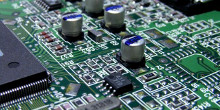NHR PerfLab Seminar: Designing Next-Generation Numerical Methods with Physics-Informed Neural Networks
Speaker: Stefano Markidis, KTH Royal Institute of Technology, Stockholm, Sweden
Title: Designing Next-Generation Numerical Methods with Physics-Informed Neural Networks
Date & time: Tuesday, February 15, 2022, 2:00 p.m. – 3:00 p.m. CET
Abstract
Physics-Informed Neural Networks (PINNs) have recently emerged as a powerful and exciting tool for developing surrogate models, data assimilation and uncertainty quantification tasks, and solving ill-defined problems, e.g., problems without boundary conditions or a closure equation. An additional application of PINNs is the development of numerical solvers of Partial Differential Equations (PDEs) in an unsupervised fashion without using data from previous simulations. While the accuracy and performance of PINNs for solving PDEs directly are still relatively low compared to traditional numerical solvers, combining traditional methods and PINNs opens up the possibility of designing new hybrid numerical methods with improved performance. This talk introduces how PINNs work, emphasizing the relation between PINN components and main ideas with classical numerical methods, such as Finite Element Methods, Krylov solvers, and quasi-Monte-Carlo techniques. I then discuss opportunities for developing a new class of numerical methods combining classical and neural network solvers.
Speaker bio
 Stefano Markidis is an associate professor and researcher in High-Performance Computing at KTH Royal Institute of Technology, Stockholm, Sweden. His research interest focuses on emerging computing paradigms and modeling. In his free time, he likes to watch football games and read American writers’ novels. He is a big fan of McCarthy, Fante, and Melville.
Stefano Markidis is an associate professor and researcher in High-Performance Computing at KTH Royal Institute of Technology, Stockholm, Sweden. His research interest focuses on emerging computing paradigms and modeling. In his free time, he likes to watch football games and read American writers’ novels. He is a big fan of McCarthy, Fante, and Melville.

